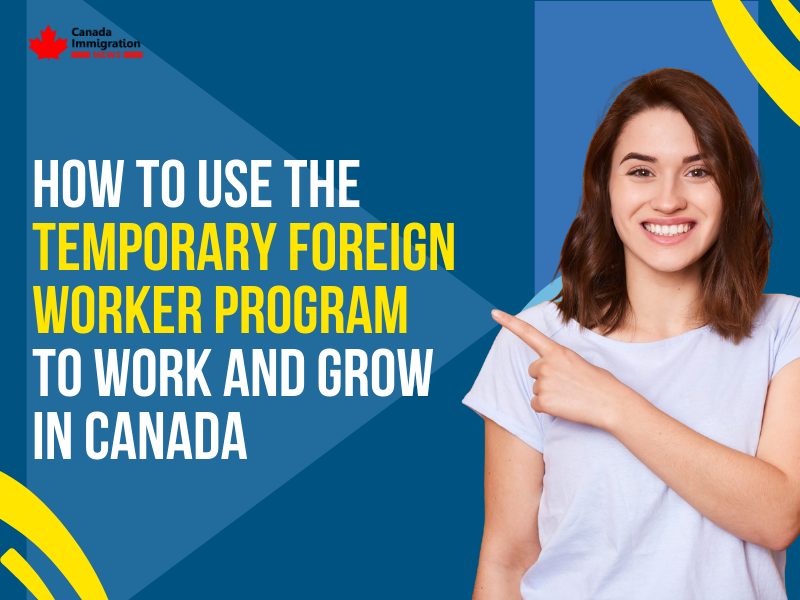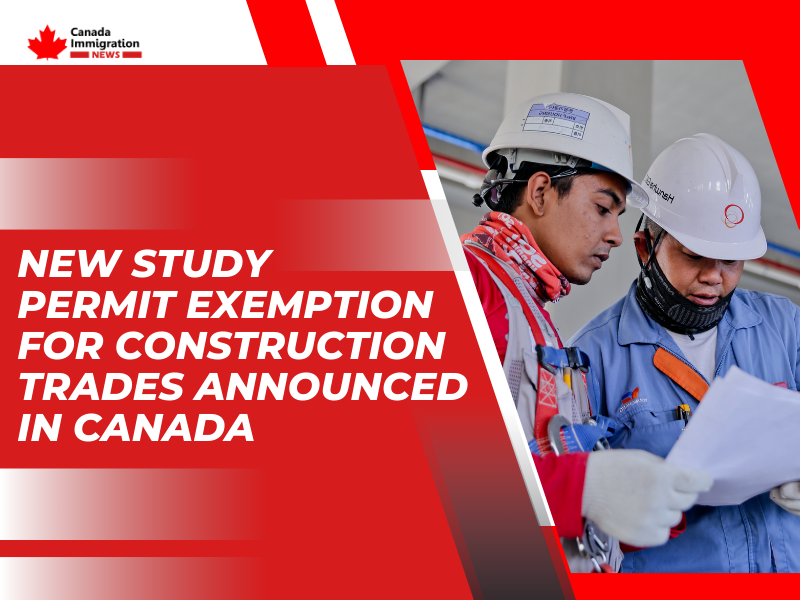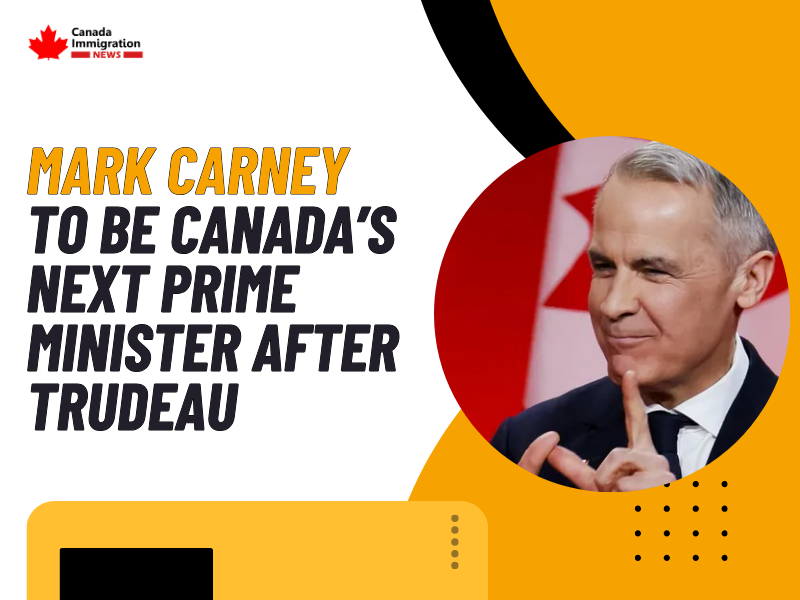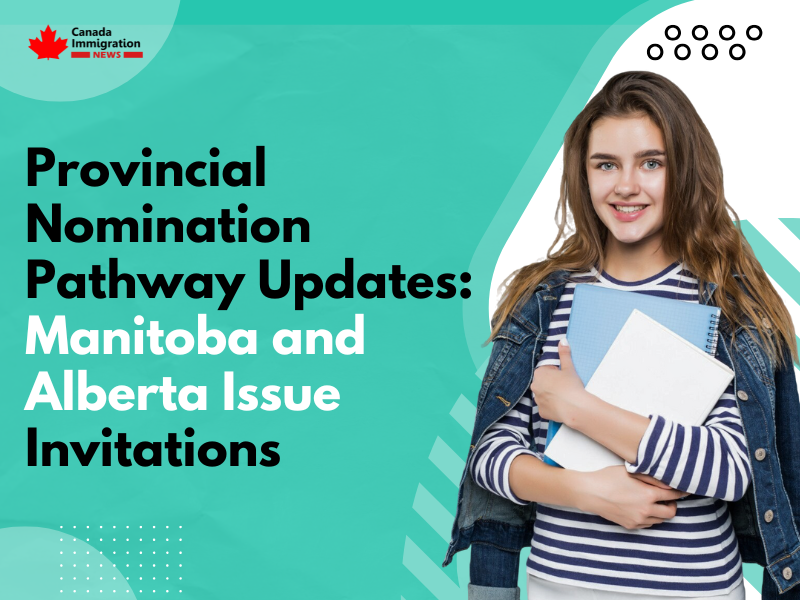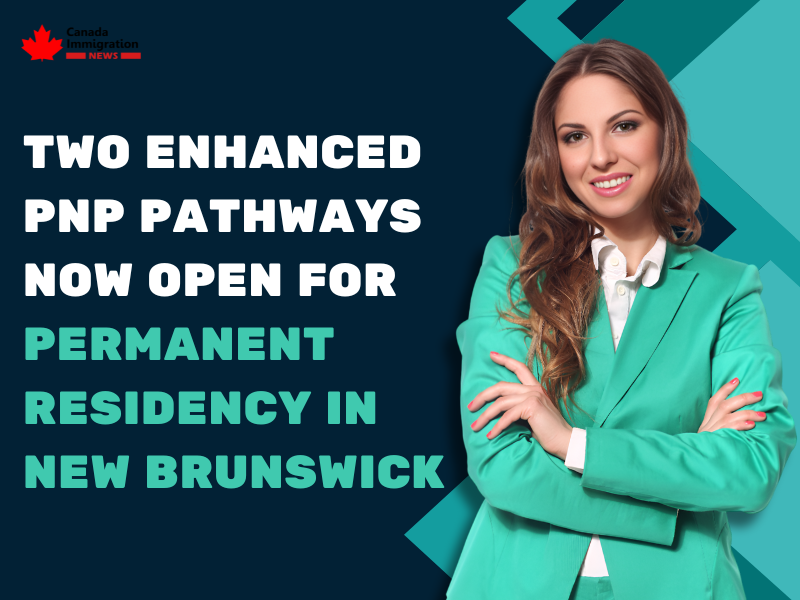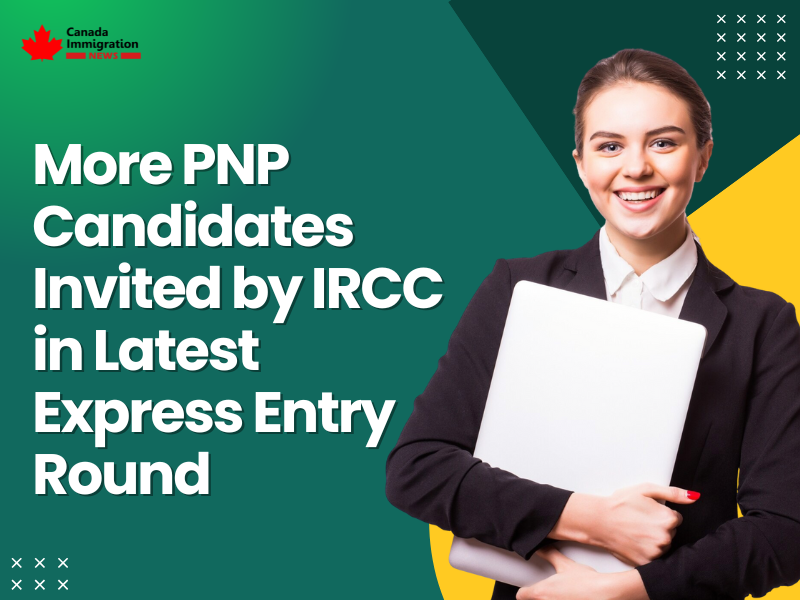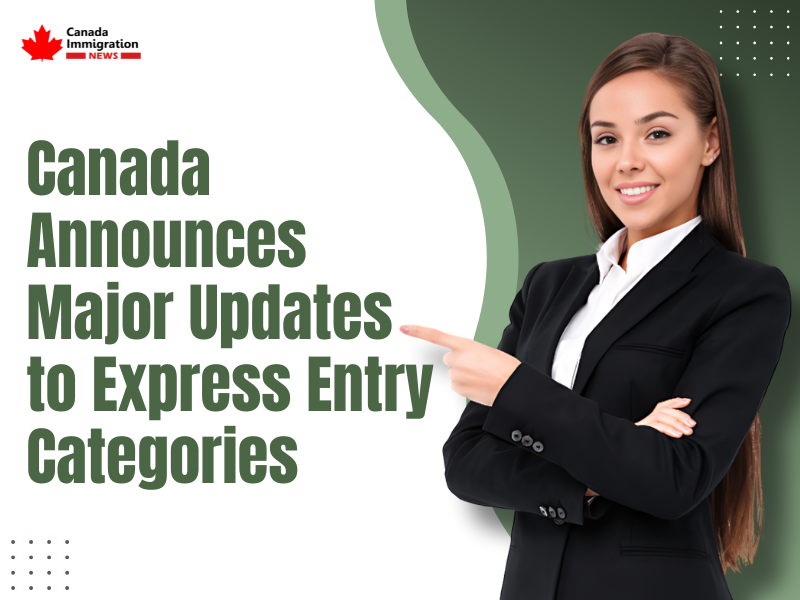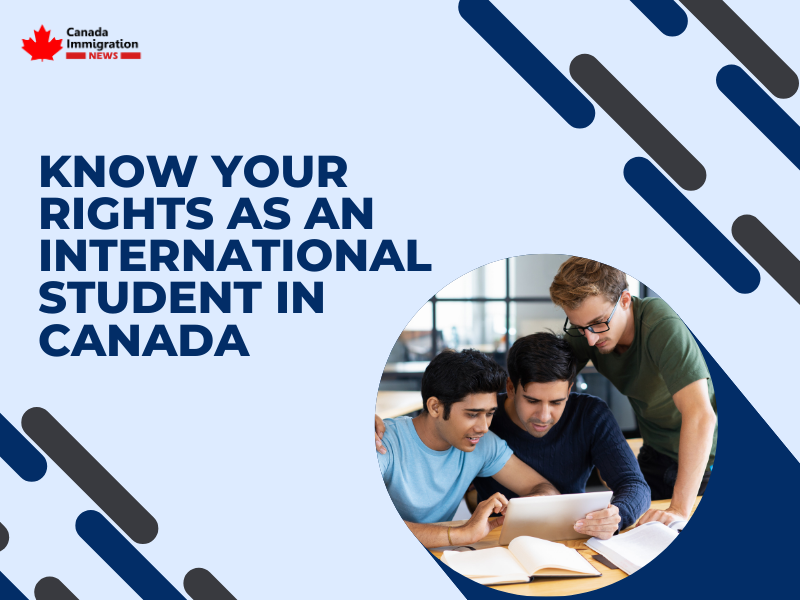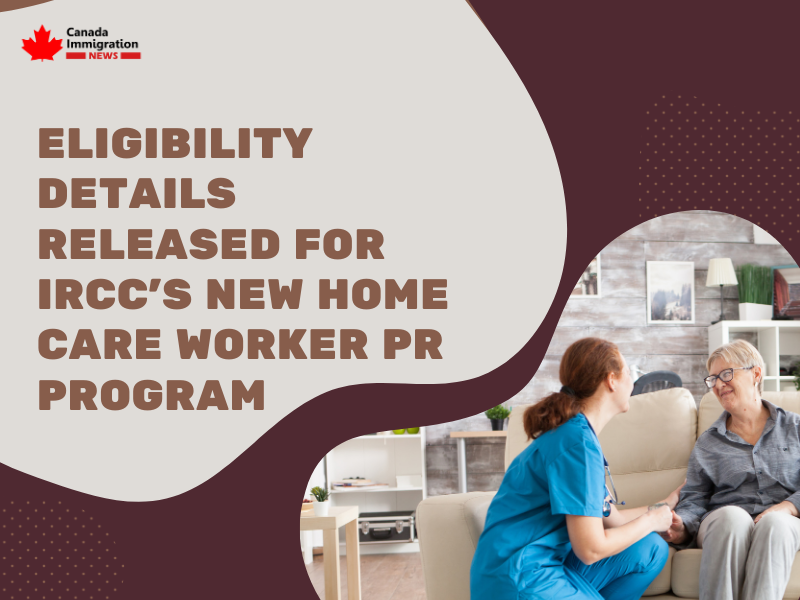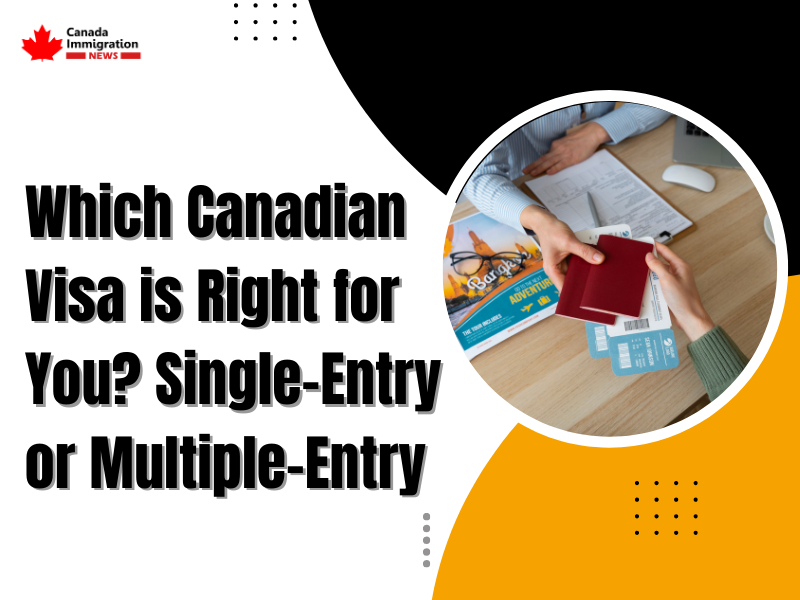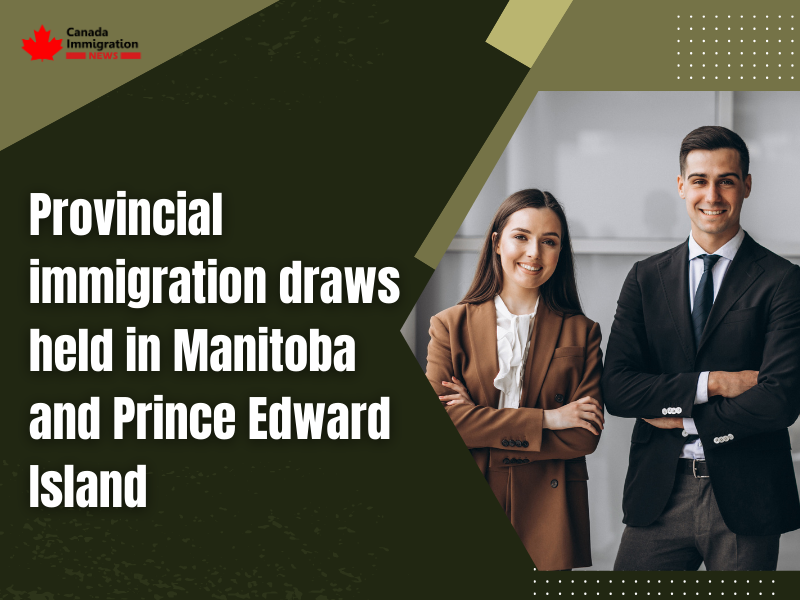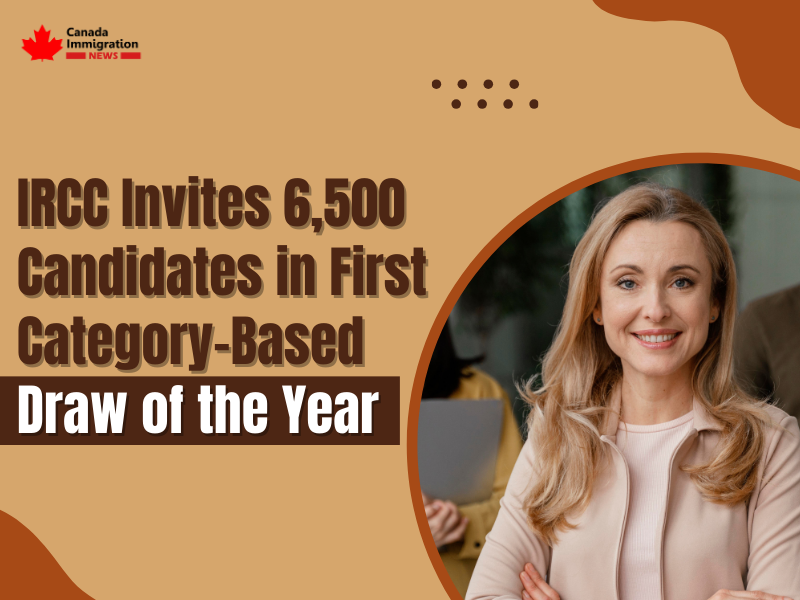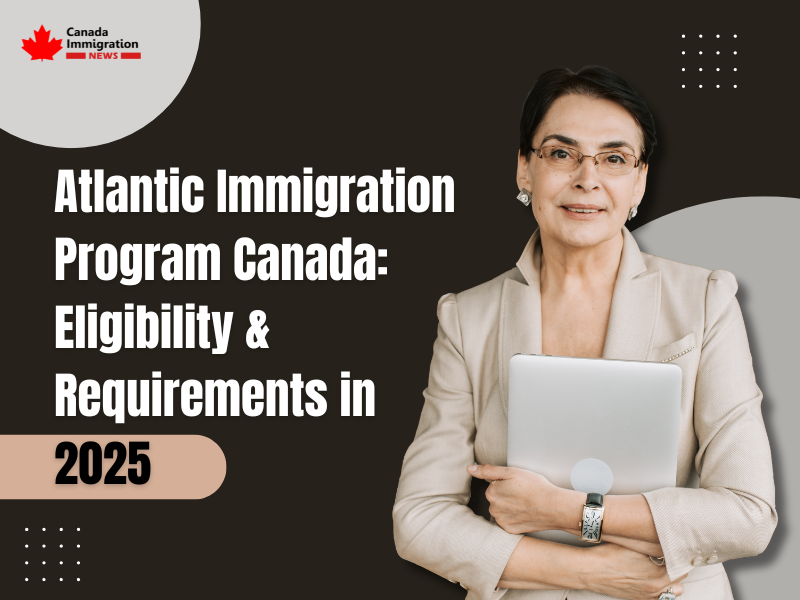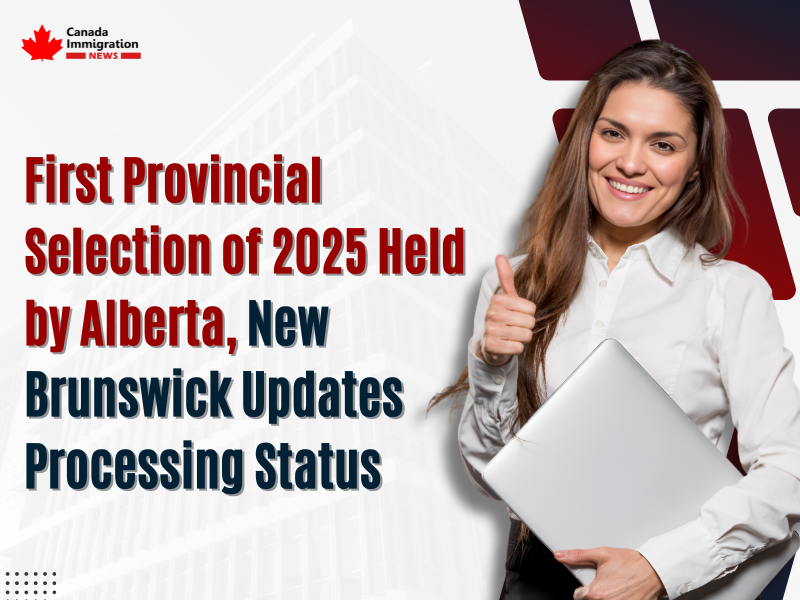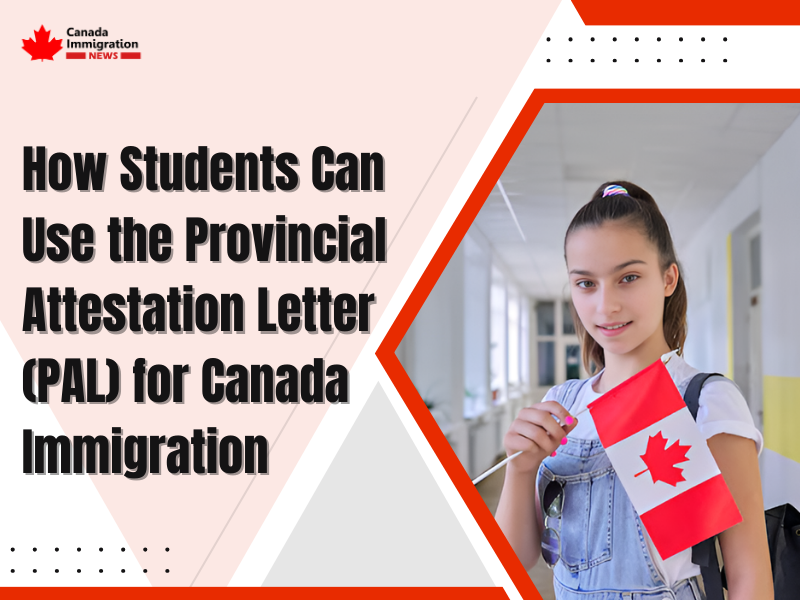Latest Canada Immigration News | Immigration News
Get the latest Canada Immigration News about the various immigration pathways of Canada. Stay up to date with Canada immigration news updates related to express entry draws, PNP draws and much more.
How to Use the Temporary Foreign Worker Program to Work and Grow in Canada
Canada is a land of opportunities. If you are dreaming of working in Canada, the Temporary Foreign Worker Program (TFWP) could be your gateway to a better future. This program is designed to help Canadian employers fill job positions when there are no suitable local candidates. For people from around the world, the TFWP provides […]
All the latest updates related to Canada immigration pathways will be delivered efficiently with the help of Canada Immigration News. Through the informative and engaging news contents and blogs offered by Canada Immigration News, every detail regarding the major ways to apply for permanent residence like Express Entry and Provincial Nominee Program will be provided to you sooner than anywhere else. Canada Immigration News is the fastest way to receive the updates about Immigration, Refugees and Citizenship Canada (IRCC) or how to get a valid job offer in Canada. Canada Immigration News takes pride in being the most effective news platform available to deliver immigration updates to the people hoping to move to Canada someday and helps them prepare for a better future.
New Study Permit Exemption for Construction Trades Announced in Canada
The Canadian government is making it easier for temporary foreign workers to gain hands-on experience and training in the construction sector. A new policy from Immigration, Refugees and Citizenship Canada (IRCC) allows eligible workers to enroll in apprenticeship programs without needing a separate study permit. Who Can Apply? To benefit from this exemption, workers must: […]
Mark Carney to Be Canada’s Next Prime Minister After Trudeau
Mark Carney has been elected as the new leader of the Liberal Party and will serve as Canada’s 24th prime minister. He secured a landslide victory in the leadership race with 131,674 votes, around 85.9% of the total ballots cast. The announcement came from Liberal Party president Sachit Mehra, confirming that Carney, a former Bank […]
New Immigration Pathway Opens for Construction Workers in Canada
Canada’s immigration department has introduced new measures to support the construction industry, aiming to tackle labor shortages and boost housing supply. Major Policy Updates Immigration Minister Marc Miller announced these changes in Woodbridge, Ontario, on March 7, 2025, emphasizing that the study permit exemption takes effect immediately. Previously, most foreign workers had to apply for […]
Provincial Nomination Pathway Updates: Manitoba and Alberta Issue Invitations
Two Canadian provinces have recently invited skilled workers to apply for provincial nominations, offering pathways to permanent residency through their Provincial Nominee Programs (PNPs). Manitoba PNP Invitations Manitoba issued invitations to candidates under its Skilled Worker in Manitoba and Skilled Worker Overseas streams between February 28 and March 7. On March 6, the Manitoba Provincial […]
How to Immigrate to Canada Through the Federal Skilled Trades Program
Immigrate to Canada through the Federal Skilled Trades Program (FSTP) can be a life-changing opportunity for skilled workers looking for better career prospects and a high quality of life. Canada is known for welcoming immigrants with open arms, offering countless opportunities for those with the right skills and experience. If you have expertise in a […]
Canada’s Express Entry Draw Invites 4,500 with Lowest CRS Cut-Off Since August 2024
Immigration Refugees and Citizenship Canada (IRCC) recently sent out 4,500 Invitations to Apply (ITAs) to Express Entry candidates, focusing on those with French-language proficiency. To qualify, candidates needed a minimum Comprehensive Ranking System (CRS) score of 410 and had to submit their Express Entry profile before 7:47 a.m. UTC on February 11, 2025. This was […]
Two Enhanced PNP Pathways Now Open for Permanent Residency in New Brunswick
New Brunswick Updates Provincial Nominee Program for 2025: New Pathways, Eligibility Changes, and Excluded Occupations Starting March 5, 2025, New Brunswick is opening new opportunities for eligible newcomers to submit Expressions of Interest (EOIs) through the New Brunswick Provincial Nominee Program (NBPNP). The program has introduced updates to two Express Entry-aligned pathways: However, certain occupations […]
Eligibility, Documents and Benefits for Physiotherapy Jobs in Canada
Physiotherapy jobs in Canada is a highly respected profession, offering rewarding career opportunities to skilled professionals from around the world. With a growing demand for healthcare services, Physiotherapy Jobs in Canada have become an attractive option for those looking to build a stable and fulfilling career. If you are considering moving to Canada to work […]
Why the C11 Work Permit is Perfect for Starting a Business in Canada
Starting a Business in Canada is a dream for many entrepreneurs around the world. The country offers a stable economy, welcoming immigration policies, and countless opportunities to grow and succeed. But navigating the immigration process can be challenging, especially when figuring out how to secure a work permit that aligns with your business goals. Thankfully, […]
More PNP Candidates Invited by IRCC in Latest Express Entry Round
In a new development, Immigration Refugees and Citizenship Canada (IRCC) has invited 725 candidates to apply for permanent residency through a Provincial Nominee Program (PNP) draw. Candidates needed a minimum Comprehensive Ranking System (CRS) score of 667 and had to create their Express Entry profile by 6:25 pm UTC on June 5, 2024, to be […]
Understand Your Rights as a Tenant Before Renting a House in Canada
Renting a house in Canada is a big step, and it’s important to understand your rights as a tenant before signing a lease. Knowing your rights can help you avoid potential issues, protect your living situation, and ensure you have a safe and comfortable home. Every province and territory has its own rules, but there […]
Canada Announces Major Updates to Express Entry Categories
On February 27, 2025, Immigration, Refugees, and Citizenship Canada (IRCC) announced updates to the Express Entry system, bringing changes to category-based draws and occupation lists. New and Retired Categories A new Education category has been introduced with five occupations, while the Transport category has been phased out. The Healthcare category now includes more social service […]
The Benefits of Family Sponsorship for Permanent Residency in Canada
Canada is known for its welcoming nature. If you have loved ones in Canada, family sponsorship is a great way to obtain permanent residency in Canada. This program is designed to help Canadian citizens and permanent residents bring their family members to Canada and offer them the opportunity to apply for permanent residency. Through family […]
Know Your Rights as an International Student in Canada
Moving to a new country for education is an exciting yet challenging journey. As an International Student in Canada, you must be aware of your rights to ensure a smooth and enjoyable experience. Canada is known for its welcoming nature and supportive policies for international students. However, understanding your rights will help you navigate life […]
Eligibility Details Released for IRCC’s New Home Care Worker PR Program
Canada is making it easier for home care workers to become permanent residents! Immigration, Refugees and Citizenship Canada (IRCC) has shared fresh updates on the new Home Care Worker Immigration Pilots (HCWP), simplifying language, experience, and education requirements. Key Launch Dates and Application Info The new pathways will officially open on March 31, 2025. At […]
Which Canadian Visa is Right for You? Single-Entry or Multiple-Entry
Choosing the right Canadian visa can feel confusing, especially when you’re deciding between a single-entry or multiple-entry option. Whether you’re planning a short visit or hoping to travel in and out of Canada frequently, understanding the difference between these visas is important. Knowing which visa suits your needs can save you time, money, and unnecessary […]
Steps to Take If Your Canada PR Visa Gets Refused
If you’ve applied for a Canada PR visa and received a refusal, it can be incredibly frustrating and disheartening. You’ve invested time, effort, and emotions into your application, hoping for a positive outcome. But don’t lose hope just yet. A refusal doesn’t mean the end of your dream to settle in Canada. In fact, many […]
Provincial immigration draws held in Manitoba and Prince Edward Island
Manitoba and Prince Edward Island recently invited candidates to apply for provincial nomination through their Provincial Nominee Programs (PNPs), opening doors to new opportunities in Canada. Manitoba PNP Draw Results (Feb 14–21) Manitoba held two draws on February 20, prioritizing highly educated candidates and those with direct invitations. In the International Education Stream, 19 candidates […]
How to Move to Canada with Quebec Skilled Worker Program (QSWP)
Moving to Canada is a dream for many people around the world. If you are a skilled worker, the Quebec Skilled Worker Program (QSWP) could be your ticket to making that dream come true. This immigration pathway is designed to attract talented professionals to Quebec, a province known for its rich culture, vibrant cities, and […]
High-Demand Jobs in Canada and Their NOC Codes You Should Know
Canada has so many opportunities, attracting skilled workers. If you are planning to work in Canada, knowing which jobs in Canada are in high demand is essential. The Canadian government uses a system called the National Occupational Classification (NOC) to categorize jobs based on skill levels and work responsibilities. This system is important for job […]
Top 10 Most In-Demand Jobs in Calgary for Immigrants in 2025
Moving to a new country is a big step, and securing jobs in Calgary is one of the most important parts of settling down. Calgary, one of Canada’s fastest-growing cities, offers excellent job opportunities for immigrants. With a strong economy, low unemployment rate, and high demand for skilled workers, it is a great place to […]
IRCC Invites 6,500 Candidates in First Category-Based Draw of the Year
Immigration, Refugees and Citizenship Canada (IRCC) has conducted another Express Entry draw, inviting 6,500 candidates under the French-proficiency category. To be eligible, candidates needed a minimum Comprehensive Ranking System (CRS) score of 428 and must have created their Express Entry profile before 4:41 PM Coordinated Universal Time (UTC) on February 10, 2025. This is the […]
Atlantic Immigration Program Canada: Eligibility & Requirements in 2025
Canada has always been a top choice for immigrants looking for better job opportunities and quality of life. The Atlantic Immigration Program (AIP) has gained immense popularity. This program is specifically designed for skilled workers and international graduates who wish to live and work in the Atlantic provinces of Canada, including Nova Scotia, New Brunswick, […]
How to Successfully Apply for a Super Visa for Canada
Canada is famous for its friendly atmosphere, and the nation provides multiple routes for individuals. One of these routes is the Super Visa for Canada, which is specific to parents and grandparents of Canadian citizens or permanent residents. Through this visa, they can travel to their kids or grandkids in Canada for a long time, […]
Express Entry Draw Sees More Invitations for PNP Candidates
Immigration, Refugees and Citizenship Canada (IRCC) has just held a new round of invitations under the Express Entry system, inviting 646 candidates through the Provincial Nominee Program (PNP) stream. To be eligible for consideration, candidates needed to have a minimum CRS (Comprehensive Ranking System) score of 750 and had to have submitted their Express Entry […]
First Provincial Selection of 2025 Held by Alberta, New Brunswick Updates Processing Status
The Alberta Advantage Immigration Program (AAIP) has kicked off its 2025 immigration season by issuing invitations to candidates in its first draw of the year. These invitations were offered to Provincial Nominee Program (PNP) hopefuls, with a focus on their professional expertise, experience, and/or connections to Alberta. In a separate development, New Brunswick has shared […]
How to Apply for a Work Permit in Canada
Many people from different parts of the world apply for a work permit in Canada to secure employment in various fields. Canada is one of the top destinations for skilled workers looking for better job opportunities and a high standard of living. Whether you want to work in technology, healthcare, construction, or any other industry, […]
Report Reveals Canada’s Most Affordable Provinces With the Best Quality of Life in 2025
A recent ranking has highlighted the most affordable provinces in Canada that also offer a high quality of life in 2025. The list, compiled by Montreal-based moving company MovingWaldo, was created by evaluating key factors such as neighborhood safety, housing affordability, rental costs, and the overall cost of living. The Most Affordable Canadian Provinces Offering […]
How Students Can Use the Provincial Attestation Letter (PAL) for Canada Immigration
One important tool in the Canadian immigration process is the Provincial Attestation Letter (PAL). This letter plays a key role in helping international students move from temporary status to permanent residency. But how exactly can students use this letter to improve their chances of immigrating to Canada? In this blog, we will explore what the […]
What to Write in Your Canada Visitor Visa Invitation Letter
When planning a trip to Canada, one of the key steps in securing your Canada visitor visa is writing a strong and clear invitation letter. This letter is often a required document when applying for a Canada visitor visa, especially if you are visiting friends, family, or any other connections in the country. The invitation […]
